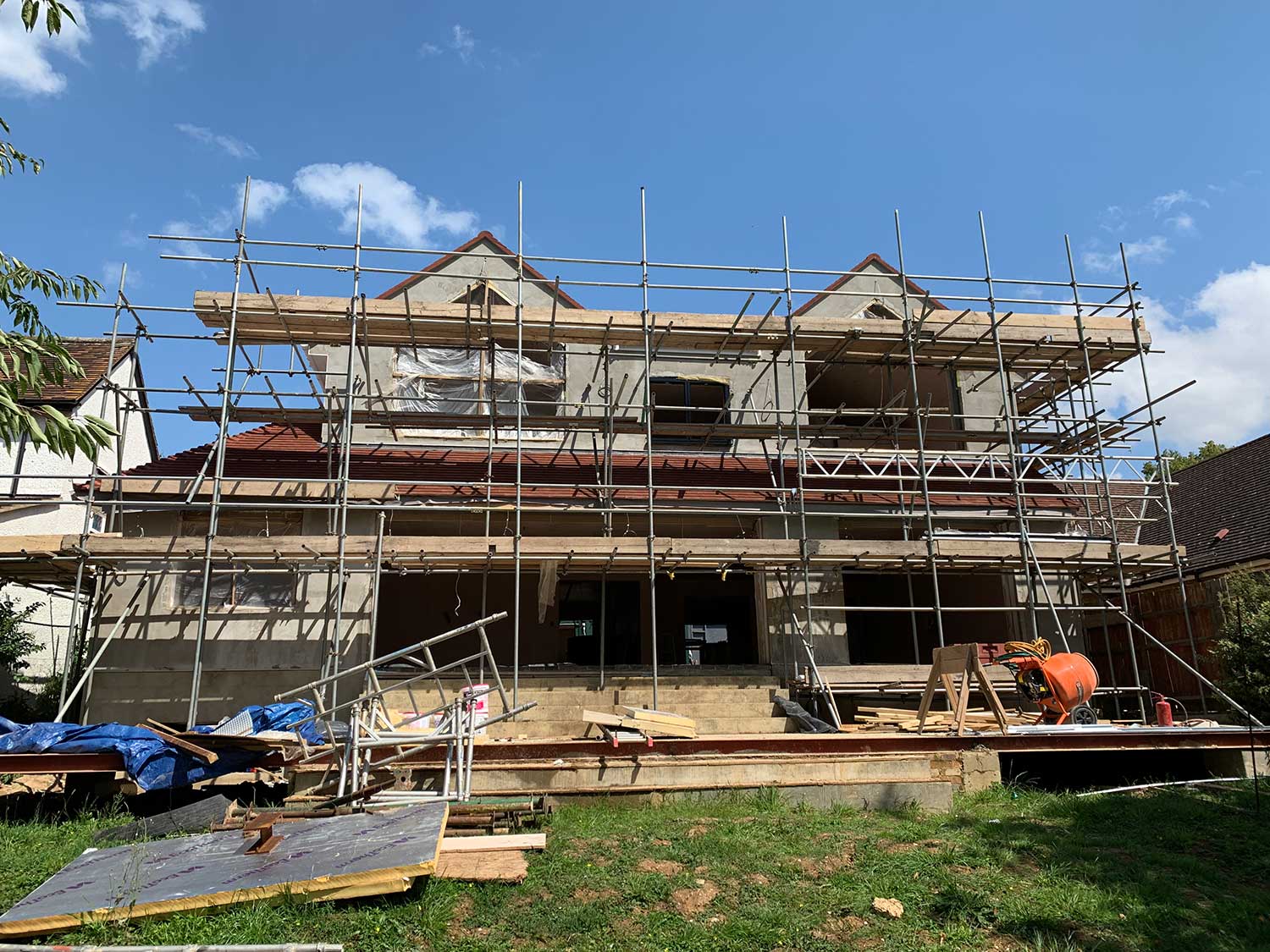Why employ a Project Manager?
Taking on your property project is very exciting but can also be extremely daunting. There are so many stages of a project and so many elements to have in place to make sure the project runs smoothly, on time and on budget. Running a project is extremely time consuming and needs experience, patience and a methodic approach.
Every project needs structure, from a single storey extension to a full house refurbishment, from the design and build of a luxury block of flats to the planning and development of a retail park, to ensure the project’s success.
Employing a Project Manager removes the fear, stress and strain of the project allowing the Client the freedom to enjoy the entire process knowing they are in very safe hands.
Employing a Project Manager/Design and Build specialist will invariably save you time, money and many headaches!
The key to successful project management, regardless of the size of the project, is determined by the procedures detailed below.

Initiation
Ideas and the options should be studied with an open mind, embracing change if beneficial to the success and end result of the project
Communication
Communication is the key to a successful project and it is imperative that there is continued dialogue between the Client and Project Manager to discuss ideas and options and for the Client to be kept up to date at all times.
Planning
Planning permissions and also planning the project needs to be addressed meticulously and the right professionals brought on board as early as possible to ensure the smooth running of the project and to avoid wasted time and money later in the project.


Risk Management
Identifying and mitigating risk is a core responsibility of the Project Manager and proactive risk management minimizes unexpected setbacks.
Execution
Once everything is in place, the planned project needs to be executed with an eye for detail at every stage, from tender to instruction, commencement to handover and beyond. Employing a Project Manager enhances efficiency and increases the success of the project plus it removes the stress of dealing with multiple trades and professionals.
Monitoring
Each aspect of the project requires monitoring, from the planning, the execution, and, most importantly, the budget. It is the Project Manager’s job to keep the project on track at all times and to keep their Client fully informed.


Change
Projects invariably alter from the initial thought processes and it is important to maintain an open mind to change and to be reactive where change is needed.
Closure
All too often a project is left with many loose ends causing problems and issues further in time, it is vital that the Client is delivered a fully completed project, all snagging work completed satisfactorily and all project paperwork, licenses, permissions and warranties obtained and handed over.
Central Point of Communication
A project will contain many elements and many individual professionals carrying out their independent responsibilities. The Project Manager liases with each of these professionals and gives the Client a central point of communication.
